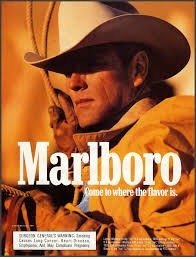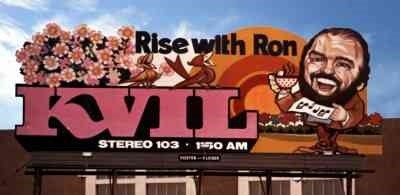 Back in the ‘80s, Paul Jacobs took a break from radio to work for a marketing services agency. This company created and executed promotional campaigns for several major league brands – like Philip Morris. Each of the companies and products they repped had a brand manager, but the one that truly mattered – Marlboro – had one guy who none of us ever saw.
Back in the ‘80s, Paul Jacobs took a break from radio to work for a marketing services agency. This company created and executed promotional campaigns for several major league brands – like Philip Morris. Each of the companies and products they repped had a brand manager, but the one that truly mattered – Marlboro – had one guy who none of us ever saw.
He sat in an office on Park Avenue, and he had one job: NOTHING happened with the Marlboro Man without it being run by him.
The image, photos, copy, merchandise, ads, press releases – anything that had to do with the human symbol of the Marlboro brand – couldn’t happen without his approval. That was his only job. And the result was that the brand’s icon was always positioned consistently wherever it appeared.
That’s what a true brand manager does. In television, they now call these people “showrunners.” What were once executive producers have become celebrities themselves, overseeing every little detail of scripted series.
Many of us simply don’t have the time to watch all of the wonderful television that is being created. There’s simply too much of it and not enough time to consume it all. The Wall Street Journal covered this phenomenon last year in a piece by John Jurgensen called “How Many TV Series Can Your Brain Take?”
He counted 371 scripted series last year, an unfathomable number of shows that viewers simply cannot get enough of. They dominate dinner conversations, they’re all over social media, and they have rebooted and redefined the television industry and the way we consume TV.
 And I would attribute much of the success of these series to the “showrunners” who develop, shape, and control these stories that can go on for years, from cliffhanger to cliffhanger, and season to season.
And I would attribute much of the success of these series to the “showrunners” who develop, shape, and control these stories that can go on for years, from cliffhanger to cliffhanger, and season to season.
From Matthew Weiner who guided Mad Men to David Chase who gave us The Sopranos to Shonda Rhimes who has developed Grey’s Anatomy, Scandal, and How To Get Away With Murder.
In TV, “showrunners” do it all.
As USA Today’s Whitney Matheson reports, the Oxford Dictionary defines a “showrunner” this way:
“The person who has overall creative authority and management responsibility for a television program.”
The rise of the Internet has probably been the catalyst that has made showrunners familiar to the average viewer. Many fans of show follow their favorite “showrunners” on Twitter, while connecting with like-minded fans on Facebook, Instagram, and other social outlets. Oftentimes, “showrunners” dominate the online buzz and conversation. We never knew the name of the guy who watched over “The Marlboro Man” but who know what Kurt Sutter and Vince Gilligan are all about.
Jane Espenson, who is the heart and soul of Caprica and Husbands, notes that you have to be open to pissing people off, and willing to make the unpopular calls.
Castle’s Andrew Marlowe says, “Being the ‘showrunner’ means that you’re responsible for all the creative and financial aspects of the show. You’re responsible for taking an idea of the show, an idea for each episode, all the way through execution, all the way to a physical deliverable that you’re giving to the network that they’re going to be broadcasting over air.”
If that sounds a lot like what most radio program directors used to be, then we’re tracking pretty nicely. Because when you think of the most iconic brands – especially of the past – there was always a showrunner at the top, directing traffic, making the calls, envisioning the station on the air and off the air, and yes, being a control freak.
 That’s what John Gorman did for MMS.
That’s what John Gorman did for MMS.
It’s how Ron Chapman guided KVIL.
It was Oedipus shaping BCN.
It was Greg Solk taming that zoo known as The Loop, and then inventing The Drive in Chicago..
It was Scott Shannon taking Z100 “from worst to first.”
And it was Mickey Luckoff sitting atop the KGO throne ensuring his station would consistently deliver quality service, information, and entertainment to Bay Area listeners.
Sadly, some of those brands don’t exist, have morphed into something else, or are shadows of their former selves. You can blame consolidation, station sales, and other conditions of the radio industry for their current circumstances.
But I would submit to you that part of their fates are attributable to radio’s deliberate move away from the “showrunner” model.
Tomorrow, let’s expand on the conversation and talk about how today’s PDs have their work cut out for them as they attempt to navigate new and more daunting challenges in the brand building process.
- Who Loves Short-Shorts? - February 6, 2025
- The Digital Twins Of Audience Research - February 5, 2025
- How Radio Can Create Its Own “TUDUMS” - February 4, 2025




Leave a Reply